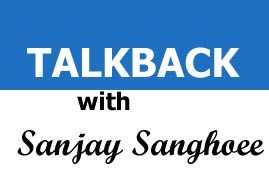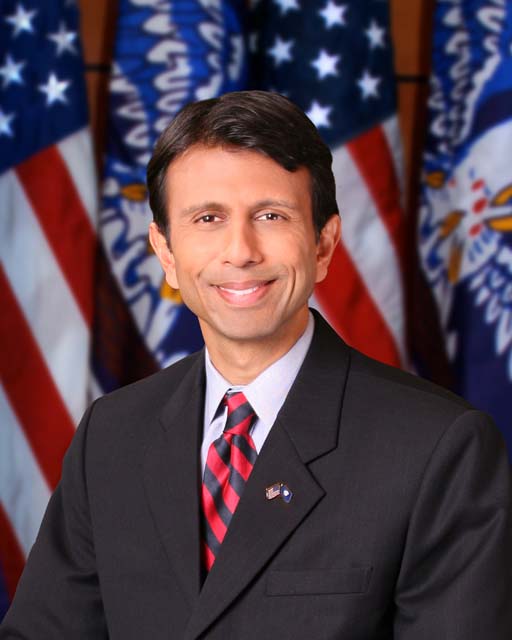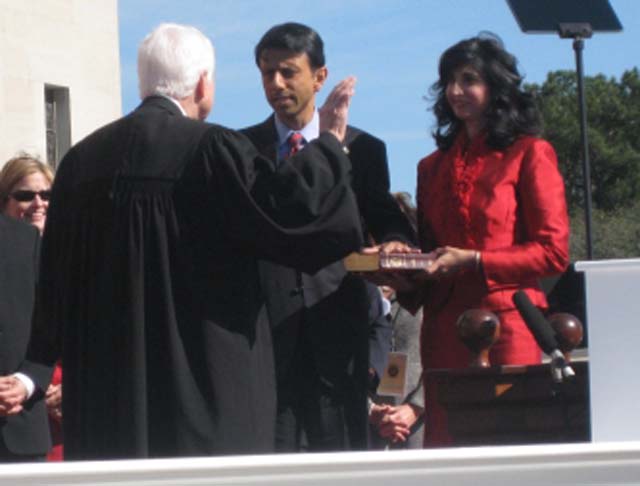
The Real Bobby Jindal…
When Bobby Jindal first exploded onto the national scene in 2007, the Indian community was rightfully proud. A boy genius had become the youngest governor in American history at the jaw-dropping age of 36. The subsequent buzz about him being a potential presidential candidate in 2012 made him into an even bigger star. At least for Indians, he was truly the anointed one. That, however, was then.
Cut to 2009 when he delivered an extremely awkward, meandering, ideologically driven Republican response to President Obama’s State of the Union speech. Even people in his own party were disappointed and suddenly there was doubt about Jindal’s readiness for a larger platform. To add to his troubles, scandals erupted about misuse of public funds and suspicious contributions to his wife’s charity by corporate interests. To be fair, those types of things are par for the course for any successful politician. There is hardly anyone today who can stand up fully to the microscopic scrutiny of a headline-hungry press. Nevertheless, Jindal’s star was suddenly falling, not rising.

Jindal: Finding a Sense of Balance
Since then things have stabilized for him and there is still some chance that he can make a comeback in time for 2012. But regardless of whether Bobby Jindal the man finds his footing again, there is the bigger issue of whether he can reconcile his party’s ideology with his own conscience. From his voting record, it’s clear that Jindal is intensely conflicted. On some issues like healthcare, lobbying and the environment he is undeniably liberal while on others like abortion, same-sex marriage, affirmative action, the second amendment and education, he is a diehard conservative. This sense of balance could be a good thing but only if Jindal defines himself and his beliefs more clearly.
Since the election of President Obama, the Republicans have hunkered down to oppose every Democratic initiative and liberal viewpoint regardless of whether it makes sense to do so or not, with the primary goal of getting Democrats, and particularly the President, out of office. This type of ideological fanaticism may make for good politics but doesn’t make for good statesmanship and goes against the grain of the man Jindal seems to be and the sense of balance that he exhibits, and will cause a serious problem for him in the future. If he goes against the party to stand up for what is right, he will lose the support of the ultra-conservatives (his base), while if he parrots the party platform blindly he will lose the support of independent and moderate voters.
What then is a smart, capable man to do?
First and foremost, Jindal needs to decide who he is and whether he wants to be a politician or a leader. Unfortunately, given the extreme and highly isolationist thinking in the Republican party today, he cannot be both at the same time. Assuming that he wants to be a leader, he must define his own platform separately from his party’s and temper it with a sense of balance and pragmatism. Most of all, however, he needs to take a stand for whatever he truly believes, not what the Republicans or the polls indicate he should believe.
The Immigration Deal
Taking the example of illegal immigration, Jindal being Indian should realize how challenging the struggle is that new immigrants, especially non-white ones, face in this country. When they are undocumented, it’s even worse. These people don’t deserve to be vilified and demonized the way they are being in conservative circles but understood with patience and compassion, and then dealt with accordingly. I’m not saying that we should not curb illegal immigration or tighten our borders, but on the issue of amnesty for the people who are already here or the 14th amendment right to citizenship for children born in the US to illegal immigrants, Jindal should have enough empathy to do the right thing. Instead he has been following the rule book of his party and taking a stance that is narrow-minded and destructive to the future of our nation.

Federal Intervention & Stimulus Money
The same thing applies to the role of federal government in crises. Some Republicans and most Tea-Partyers vehemently oppose federal intervention, particularly in the case of the economy, and Jindal is of the same mindset – yet he has not only accepted stimulus money but spent it liberally for the benefit of Louisiana. This type of double standard might be commonplace for politicians but is not in keeping with statesmanship. Which brings me back to the point that Jindal needs to decide what he will be when he grows up and start moving in that direction, especially if he has higher aspirations.
As an American and an Indian, I am proud that someone from our community has attained such heights at such a young age and regardless of my own political opinions, I would cheer on Bobby Jindal to become the leader that he shows the potential to be, but first he has to exhibit true leadership qualities. A good place to start will be his willingness and courage to take on his own party where it is wrong and not only vote by his conscience but live by it in every element of his public life, regardless of the polls or politics. That will enable him to lead the way for both liberals and conservatives with the strength of his own morals and convictions.
Then, and only then, will he be ready for prime time.
(Note: The opinions expressed are solely those of the author and do not necessarily reflect the opinions of Lassi with Lavina)

Sanjay Sanghoee, author of ‘Merger’, a corporate thriller available on Amazon, blogs on political, financial and social topics which are carried weekly by several radio stations. He has written spec episodes for TV shows like ‘Law & Order: SVU’ and a screenplay for ‘Merger’. He has an MBA from Columbia Business School and worked on Wall Street for 15 years in investment banking and hedge funds. www.sanghoee.com
Related Article:
